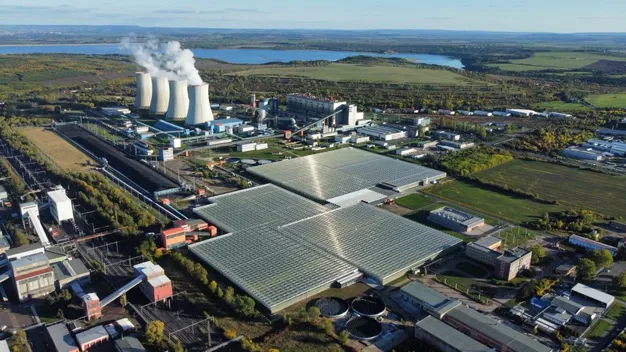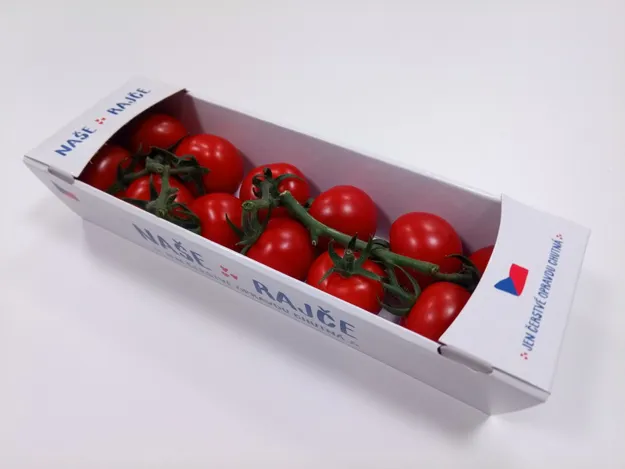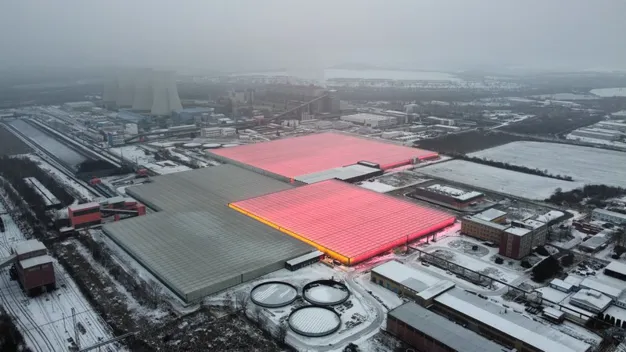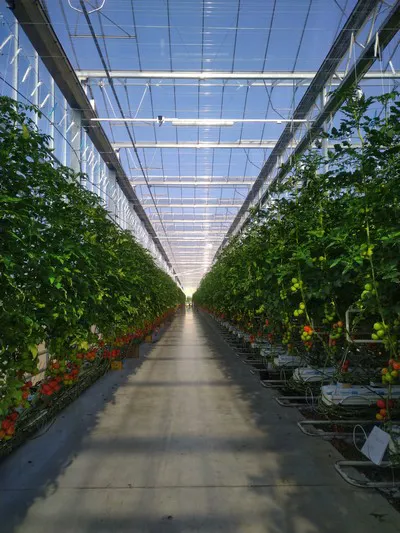"The most difficult thing to find was a good location, one which had good energy costs. We have heat for low prices, so we are in an extraordinarily good position on the market. Then we had to find the right people. In the market we operate in, there's no tradition in the greenhouse industry, so we had to bring it in from abroad. It wasn't easy - but now we're looking to double our acreage," said Lukas Razl with AGRO Kadaň.

Residual heat
During the day, it's -2, and during the night, the temperature can easily reach -9 degrees in Kadan, the Czech town where the greenhouse of AGRO Kadaň is located. Not a problem for the company. "Our greenhouse is heated with residual heat from a nearby powerplant. They need to cool their system, and we found a solution to use the waste heat," says Lukas. He says it was one of the most difficult parts of starting up the greenhouse company: Finding a good location, with good energy for a good price.
Since its erection in 2019, the greenhouse has been heated with the byproduct of the energy plant. At first, the radiant heat of the HPS lamps installed in the crop was also used to heat the crops, but last year, a switch to full LED was made. "With the Signify LED installation, we've been able to grow through the winter while lowering our energy consumption by 45%."

Vital importance
According to Lukas, the energy situation and the availability of affordable heat is of vital importance to the success of the company - but the current growing location comes with additional challenges. "Other than the countries surrounding us, the Czech Republic doesn't have a horticultural history, which means we had to put a lot of pieces together. We're based on technology and people, but since they're not available in the Czech Republic, we also had to bring in the technology and the people, which is why we looked abroad to Hungary, Slovakia, and the Netherlands. At the start, nobody believed we were able to start such a big project from scratch, and putting it all together was complicated, but now we only expect to grow even further."
"We grow large TOVs, a Rijk Zwaan variety, and our product replaces imported produce," Lucas continues. "Marketwise, our competitors are mainly from North Africa. But in terms of technology, production numbers and efficiency, we look to growers in the Netherlands. That's where the best run greenhouses are located, and where we find a lot of know-how."
He adds they're also looking for strategic partners. "A cooperation with Dutch growers could be interesting for both parties. We need to bring their knowledge to our country, but aside from that, we have amazing circumstances: a market that's high in demand for locally grown produce and a growing location where the energy prices are still on our side."

Production numbers
As with all growers, global challenges are also top of mind for the team of AGRO Kadaň - although the energy crisis can be fought with the residual heat, and since the greenhouse matches Dutch production numbers, they are also able to offer their workers a more than competitive wage in order to remain an interesting employer. "We are not in a position where we can save on people," Lucas says.
 Like growers everywhere, the team fears the Tomato Brown Virus. "We eagerly await the resistant varieties. The closest greenhouse to us is several hundreds of kilometers away, but the open fields are everywhere, and the insects are traveling around the globe."
Like growers everywhere, the team fears the Tomato Brown Virus. "We eagerly await the resistant varieties. The closest greenhouse to us is several hundreds of kilometers away, but the open fields are everywhere, and the insects are traveling around the globe."
Direct selling
Lukas explains how the company sells all their tomatoes to local supermarkets, without traders being involved.
"This is also why we want to expand our growing space: we want to move forward, and we also need to grow to remain in contact with the market and remain interesting for supermarkets."
In 2024, they're hoping to double their acreage from 12 to 20 hectares, all winter production, and adding greenhouse-grown cucumbers is on the list as well.
For more information:
Lukáš Rázl
AGRO Kadaň s.r.o.
Farma Tušimice s.r.o.
Tel.: 00420 731 502 579
razl.luk@gmail.com
